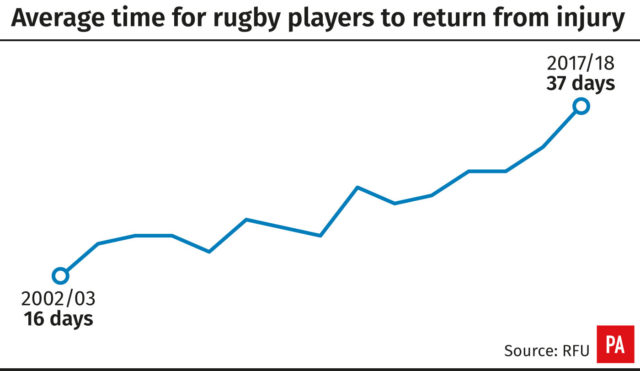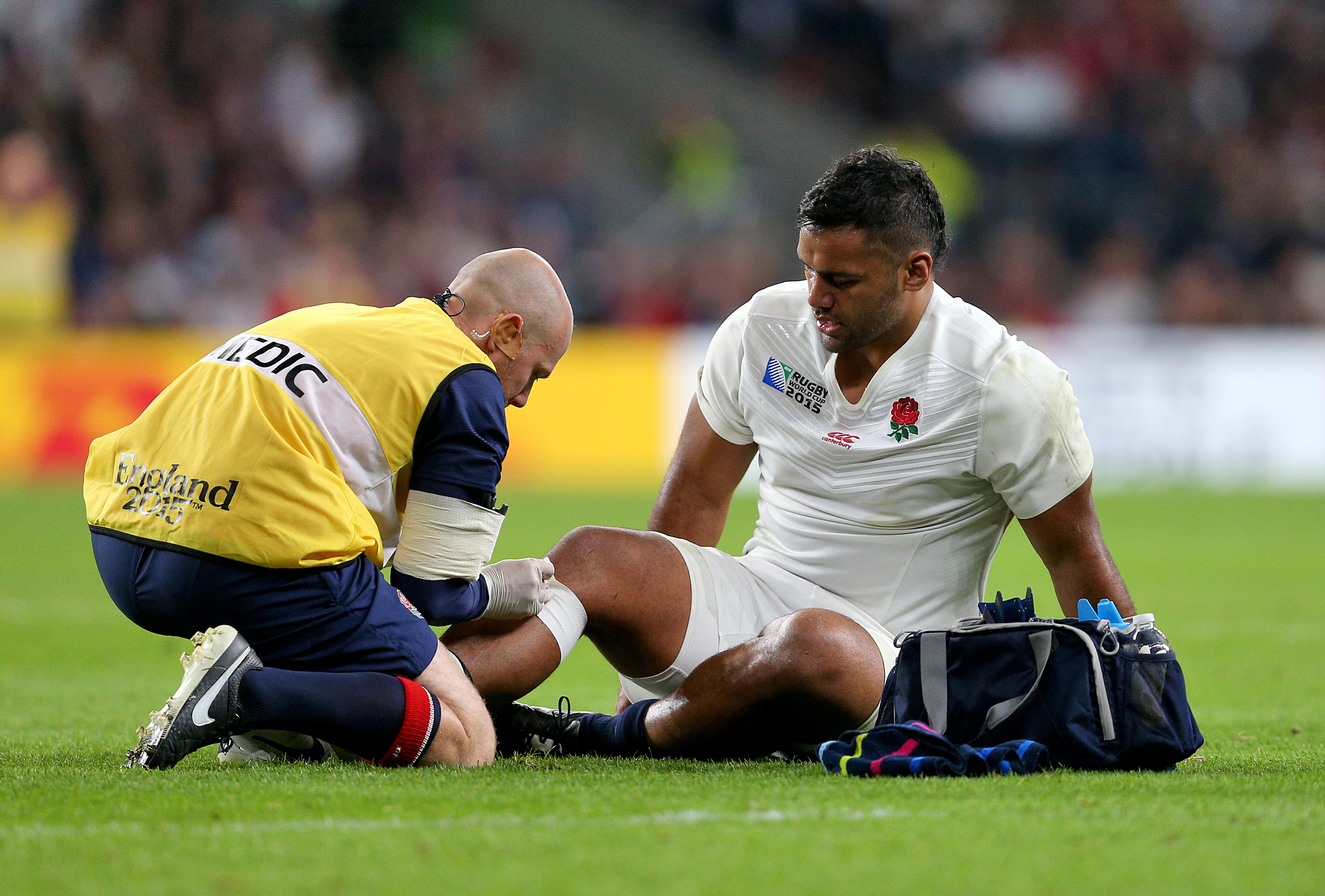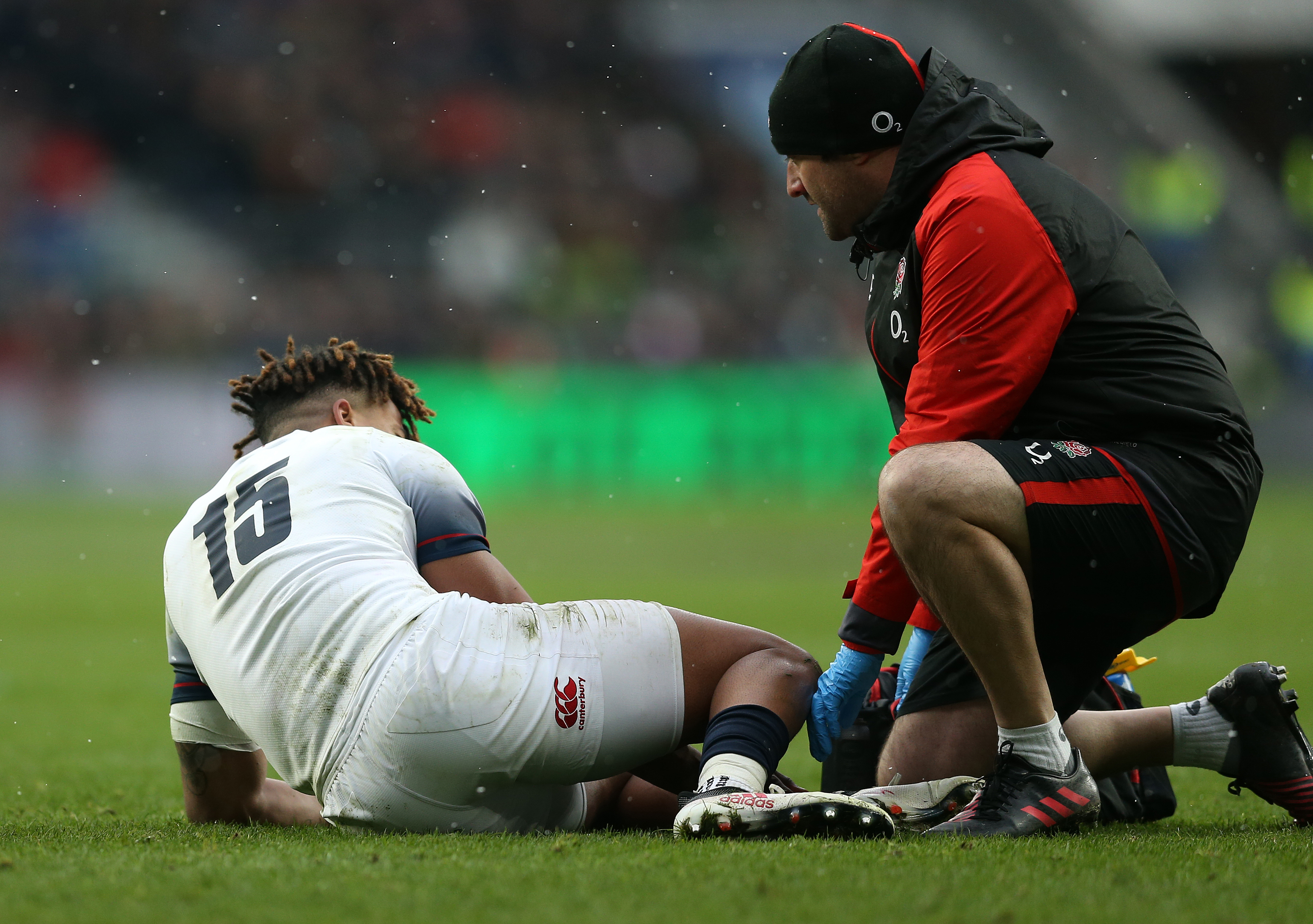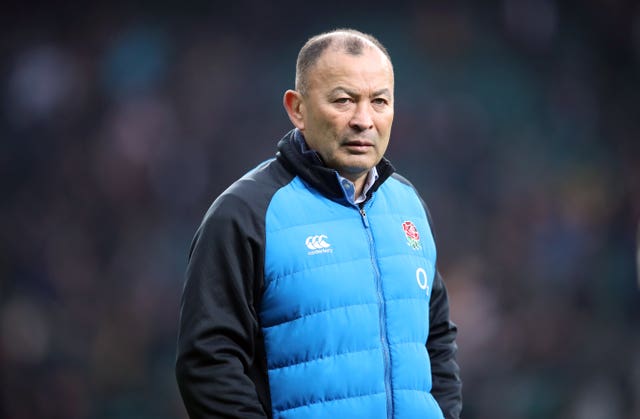English rugby's head of medicine has called for "significant changes" in order to address an alarming rise in injury severity.
Data from the annual injury audit collated by the Rugby Football Union has revealed that while the frequency of match casualties is slightly lower than the previous season, 'return to play' times for players have climbed for a second successive year.
They now stand at an average 37 days, a substantial rise of five days on the figure for 2016-17.

As a result the overall burden of match injury – which is a combination of both incidence and severity – stands at the highest level since Twickenham began compiling its records in 2002-3, when the total was a mere 16 days.
The drive to reduce risk in the sport has assumed greater urgency following the rugby-related death of three young French players aged 17, 18 and 21 in the space of seven months last year.
The RFU's 2017-18 injury audit has only heightened the level of concern, not least at Twickenham where medical services director Simon Kemp is seeking law revisions, including an escalation of yellow and red cards.
The RFU has released its 2017/18 injury surveillance report. More: https://t.co/SRMKfT6mv9 pic.twitter.com/GKlY8vpQ29 — England Rugby (@EnglandRugby) January 9, 2019
"The data suggests that more significant changes to the game might be needed to reverse these trends. We need to work with World Rugby to think about the future vision of the game," Kemp said.
"Around the world, you are three times more likely to see a card for a deliberate knock-on than you are for a high tackle.
"We and World Rugby at the moment believe yellow and red cards don't occur frequently enough to be likely to change player behaviour. We believe the threshold for receiving a card for a high tackle is currently too high.
"More work needs to be done in that area to ensure that tackles are penalised consistently around the world in a way that we believe will change player behaviour and reduce concussion risk."

World Rugby is hosting a seminar in March of tier one nations and leading competitions in France to discuss possible law changes designed to improve player safety.
In the second tier of English club rugby, a reduced tackle height trial designed to mitigate against concussion is currently in force.
"The risk in matchplay is principally around the contact area – so around the tackle and the ruck," Kemp said.
"One would expect any innovative law design to focus on the tackle and the ruck. We've already started to look at the tackle height and it's impact on concussion risk.

"We need to progress and accelerate that work with World Rugby, who are responsible for law design."
Training ground casualties have become an area of concern with the frequency of injury remaining stable, but the severity also climbing to its highest recorded level of 37 days.
In total, 38 per cent of all injuries were incurred during training with concussion the most frequent injury in full contact sessions.
While the data is for the English game overall – the Gallagher Premiership, English clubs in Europe and England internationals – the report also gives figures for injuries sustained during national team training sessions under head coach Eddie Jones.

In 2017-18, there were rises in casualties sustained during rugby skills and strength and conditioning sessions overseen by Jones, the former more than double the figure for the overall surveillance period.
The severity of injury, including the extensive knee damage suffered by Bath prop Ben Obano, has contributed to the increase and this, combined with the small number of England training sessions, has prompted the RFU to advise interpreting the figures "with caution".
However, there is a significant escalation since Jones replaced Stuart Lancaster as head coach at the end of 2015 and last summer the issue was raised by Bath owner Bruce Craig during a meeting of the Professional Game Board.
For a third successive year concussion remains the most commonly reported match injury at 20 per cent, but there has been a minor reduction compared to 2016-17 with one fewer instance every eight games.
This overall trend of an increase in severity of injury extends to artificial pitches, which at 39 days now results in an absence that is now nine days longer than on grass.
ga('create', 'UA-72310761-1', 'auto', {'name': 'pacontentapi'});
ga('pacontentapi.set', 'referrer', location.origin);
ga('pacontentapi.set', 'dimension1', 'By Duncan Bech, Press Association Sport');
ga('pacontentapi.set', 'dimension2', '1a02729a-a56f-4dd4-9a8b-0da046007e76');
ga('pacontentapi.set', 'dimension3', 'paservice:sport,paservice:sport:uk');
ga('pacontentapi.set', 'dimension6', 'story');
ga('pacontentapi.set', 'dimension7', 'composite');
ga('pacontentapi.set', 'dimension8', null);
ga('pacontentapi.set', 'dimension9', 'sport:rugby-union');
ga('pacontentapi.send', 'pageview', { 'location': location.href, 'page': (location.pathname + location.search + location.hash), 'title': 'RFU head of medicine wants tougher sanctions for high tackles'});






